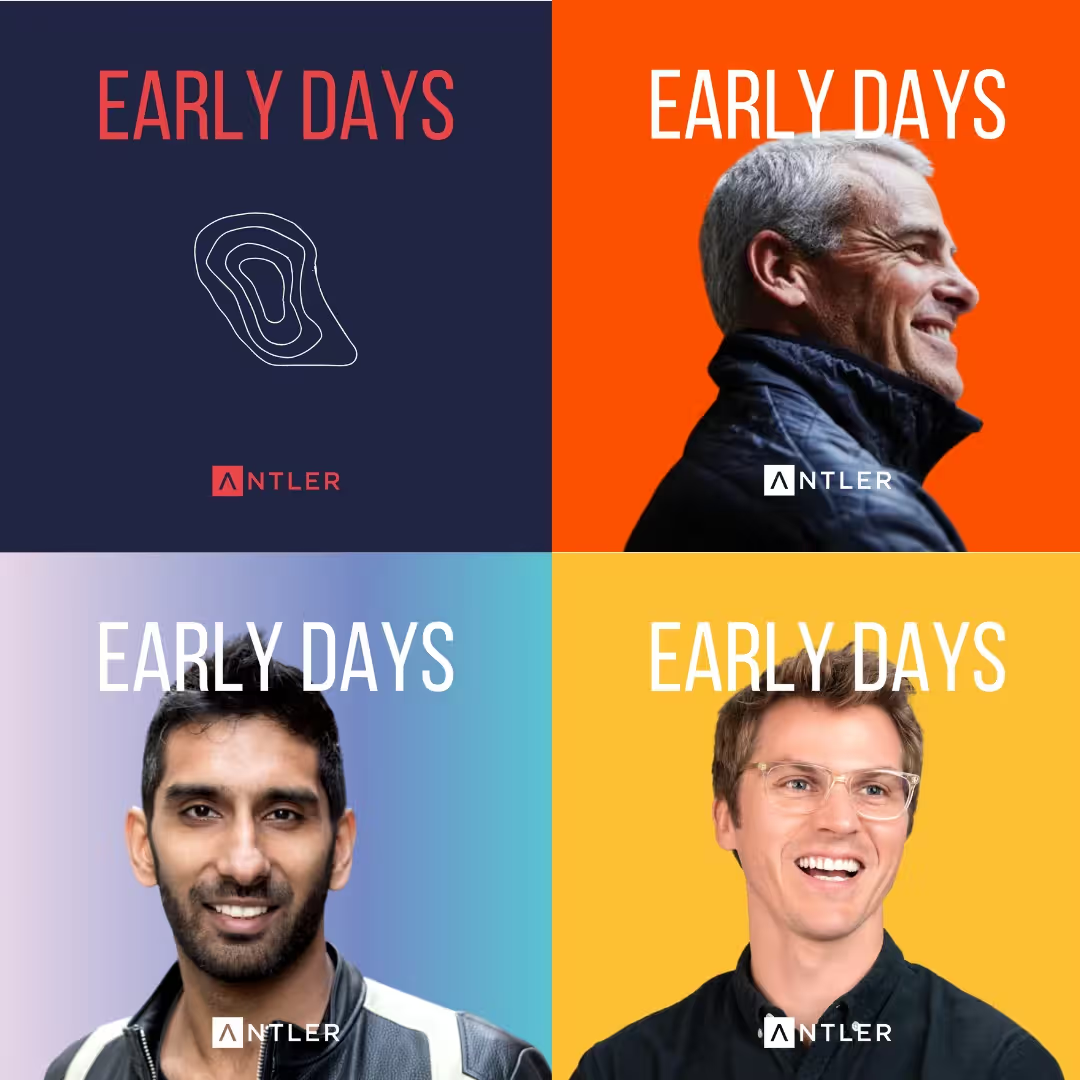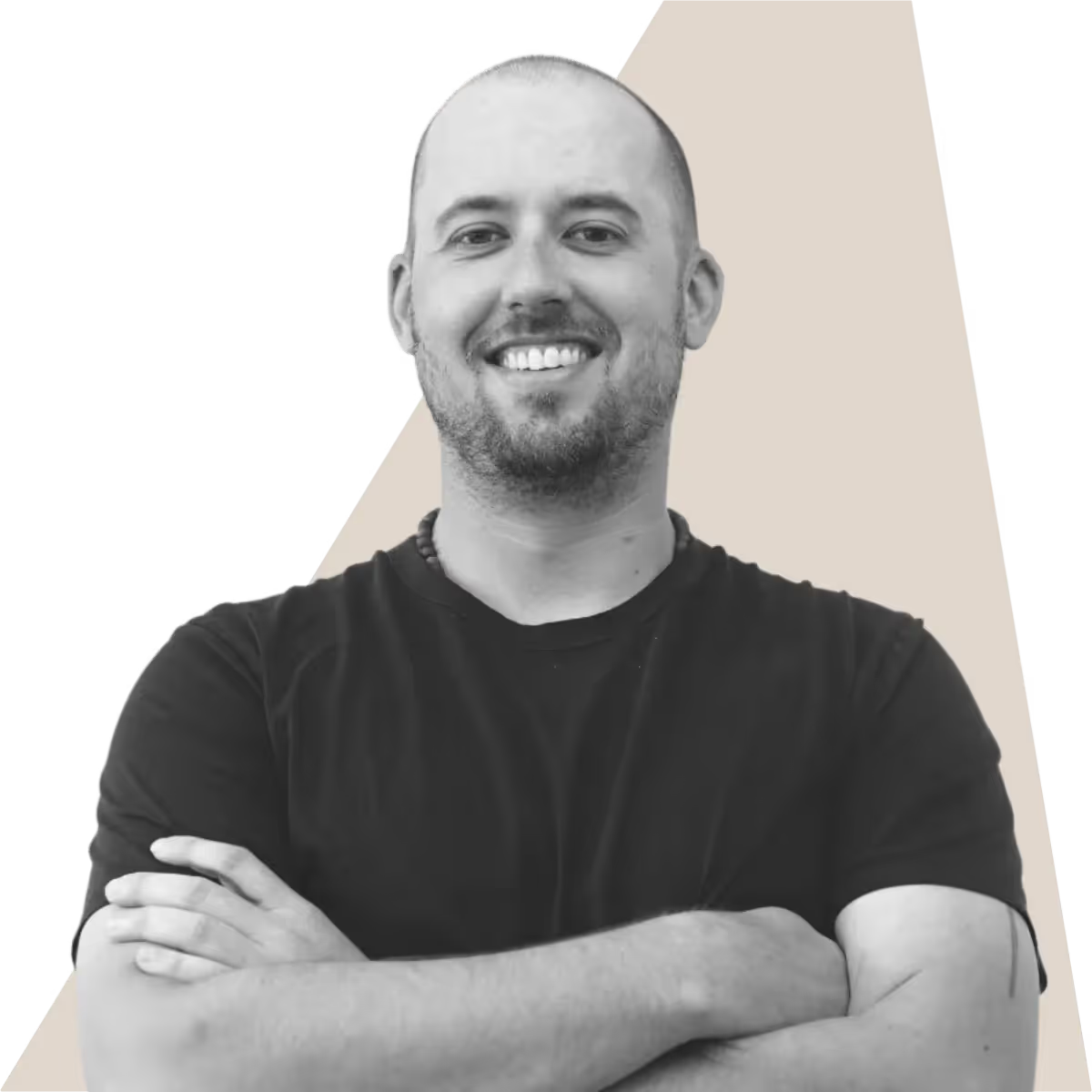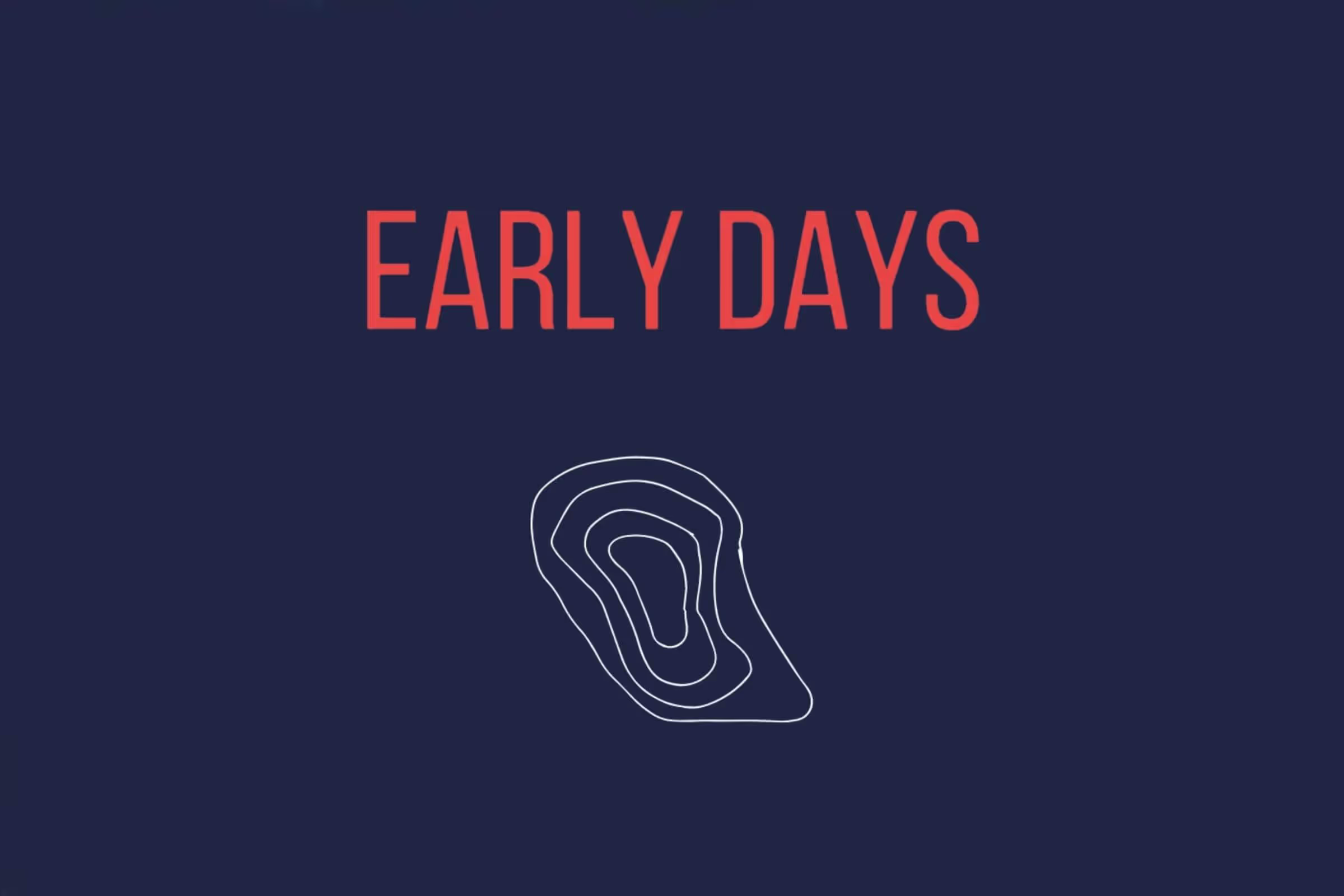What sparked the idea for Early Days?
The general public is very interested in startups and how they are built—just look at the massive success of Shark Tank and the How I Built This podcast. But none of that content is representative of what launching a new company actually looks like. How I Built This is mainly focused on post-Series A and the problems founders have solved as established, successful companies. They’ve already gone from zero to one, and the conversation is about the one to 100.
That pulls out misleading lessons and guidance for founders at the start of their journeys. Success seems so simple and linear—because the discussions skip over all the tough, non-linear parts of launching a company. I see it in founders all the time. Many focus on the wrong things in large part because they only have access to the one-to-100 stories and so apply them to the zero-to-one phase, which doesn’t work.
We started Early Days to speak with the best founders and operators in the world about the zero to one. What was the first six months of the company like? How did you meet your co-founders? How did you come up with the idea and test it? Who was your first customer? What went wrong? How did you figure out how to get the company off the ground? On Early Days I speak with elite operators—entrepreneurs who have scaled a company past $100M or more in revenue—about what they did when they were young and naïve to bring it to life and turn it into something hugely successful.
I want to bring the stories from those earliest days to light because that content isn't available anywhere. And I think it's what founders need to hear.

Many [founders] focus on the wrong things in large part because they only have access to the one-to-100 stories and so apply them to the zero-to-one phase, which doesn’t work.
— TYLER NORWOOD
Why are the early days so pivotal?
The chances of success are not distributed equally across the life cycle of a company. Statistically, the zero-to-one phase is when a disproportionate number of companies fail. For example, in the US if you are able to raise $750K to $1M, historically the chance of building a company that breaks $1B market cap is 1 in 100. Those are incredible odds. Before that, I’d venture the chances of success are somewhere between 1 in 10K or 1 in 100K. Raising a seed round translates into at least an order of magnitude increase in your chance of success. You’re already in the 1% of operators. Doing that involves figuring out how to start from nothing and build a real company.
I want to create content that gives people practical lessons and perspectives on getting over the first inflection point of the seed round. That's what people need more guidance on—the actual process of building a company. There is a lot of content out there that obsesses about ideas. The reality is startups are much more about building a business. The first principles of finding a customer and creating a product or service they are willing to pay you for.
What do you hope founders will get out of these conversations?
I want to demystify the zero to one—the sense that there is a magic process that really successful founders go through to figure it all out. The reality is they are just really focused on simple, straightforward things. It’s not glamorous. In the early days, nobody cares, you’re not doing anything big, and you’re not on the cover of Forbes. While you can think about your vision and how you want to change the world, you need to build a business. That starts with getting out there, pounding the streets, talking to customers, building a product that may barely work but solves a real problem for someone, and slowly and incrementally figuring out how to scale that up.
There’s also a natural dilation of time that happens when you listen to a founder tell the soup-to-nuts story of building their company in a one-hour podcast. While it may have actually taken 15 years, it’s hard to perceive that because the whole story was told in 60 minutes. Instead, Early Days focuses on the beginning part to better convey that it takes a long time.
I want to demystify the zero to one—the sense that there is a magic process that really successful founders go through to figure it all out. The reality is they are just really focused on simple, straightforward things. It’s not glamorous.
— TYLER NORWOOD
Humanizing startups is another goal of the podcast. The slew of news created about tech and startups is not about humans. It’s all about industries, trends, and technology—and lacks humanity and a narrative. Meanwhile, every single company we talk about is a just group of people working on solving a problem. They all have personal identities and a reason for being at that company. The only time we hear about the humans behind startups is when they do something bad. This is manifesting as general pessimism about technology in the broader market.
There are two big reasons we need to solve that narrative problem and tell the story about “normal” people who have built something great:
- It’s very bad if people are pessimistic about innovation and startups, which are the only tools we have to solve the world’s problems. Being negative about that hurts our ability to solve problems and move forward as a society.
- It’s good for aspiring founders to see the people building great companies are just like them. We are fed examples of archetypical, tech super-geeks, who are portrayed as above and beyond everyone else. That creates the sense that I could never be a successful entrepreneur because I’m not like that. The fact is most companies are built by people like all of us. We need to create a better sense of modeling so people can be inspired by hearing people like them.
Ultimately, helping more people become successful entrepreneurs will be net good for society. To get there, we need to break down the exclusiveness around technology that keeps non-tech people out. And we need more people to understand that all the good things and privilege we have in life come from free enterprise—companies solving problems for us as a society. If we don't continue to feed that infrastructure that allows those companies to succeed and thrive, the quality of life as we know it will start to disappear. Innovation is not inevitable. The future we want won’t happen automatically—people need to build it and that takes hard work.
Listen and subscribe to the Early Days podcast.









%20(1)%20(1).jpg)
%202%20(1).avif)
%20%20(1)%20(1).avif)
